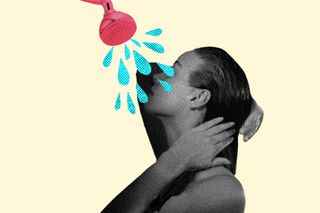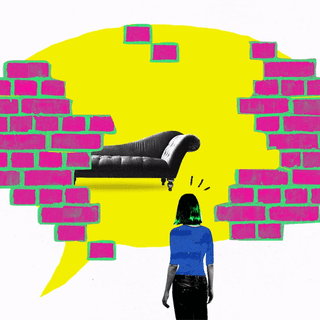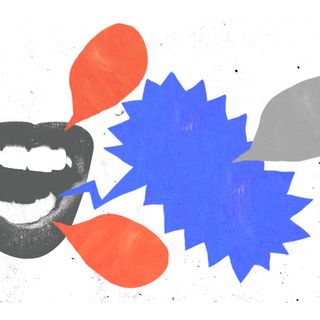
Why Taking a Shower Helps in Reducing Anxiety, Stress
“This basic, physical experience of separating residues from our body can trigger a more psychological form of separation…”

We often yearn for a long bath after a hectic day at work, a tiring trip to the supermarket, or even a particularly bad date. The sense of cleanliness that a shower brings, can wash over us like a fresh wave of relief. Turns out, there’s a bit of science behind showers working wonders on our minds and bodies.
According to a recent study, during stressful moments, the act of cleaning ourselves can reduce the anxiety we’re experiencing.
Published in the journal Social Psychological and Personality Science, the study involved more than 3,000 participants from the U.K., the U.S., and Canada. The researchers found that even watching a video on hand-washing alleviated the anxiety that participants felt upon watching a stress-inducing scene.
Moreover, one reason for the link between taking a bath and de-stressing could be the impact that cleansing behavior has on our hearts. Through yet another experiment, the researchers discovered that engaging in an act of cleansing oneself resulted in a more “adaptive cardiovascular reactivity” — defined as the “difference in heart rate, blood pressure or other measures of cardiovascular function observed between periods of rest and during the presentation of an external stressor” — during stressful situations. To put it simply, participating in cleansing behavior can make us feel calmer during periods of stress.
We’ve known about the healing effects of showers — both hot and cold — on our bodies for a long time now. Research suggests that hot showers alleviate anxiety as a result of the heat prompting our brains to release oxytocin — a “happy hormone” — which, in turn, reduces stress. Cold showers, on the other hand, are believed to enhance blood circulation, leading to stress reduction.
Related on The Swaddle:
How Self‑Care Went From Scented Candles to Affirmations, and Why It Still Doesn’t Help
Explaining the mechanism behind it, an article on Healthline states, “When you cool down your body temperature, your system responds by moving fresh blood. Anxiety may cause an increase in blood pressure, so in theory, a cold shower may help bring it down… [C]old showers [also increase] endorphins, or the feel-good hormones in your brain, [and c]old water may also decrease cortisol, a stress-inducing hormone.”
The present study, however, focuses on the cleansing effect that follows in the aftermath of a calming soak or a brisk shower. “When we engage in cleaning behavior, it involves separating residues from our body [– like] washing dirt off your hands. This basic, physical experience of separating residues from our body can trigger a more psychological form of separation, namely, separating the residual influence of past experiences from the present [– like] wiping the slate clean,” explained the study’s first author Spike Lee, an associate professor of management and psychology at the University of Toronto. “If the past experiences were stressful, then psychologically separating them from your present would reduce your stress.”
The act of cleaning — be it our bodies or our surroundings — is already known to be a stress-buster. Most of us probably even have people in our circles who resort to cleaning obsessively when they’re feeling low or having a bad day. The sense of control it momentarily imbues people with can provide them with a temporary respite from anxiety. “[Cleaning] gives people a sense of mastery and control over their environment. Life is full of uncertainty, and many situations are out of our hands, but at least we can assert our will on our living space,” Darby Saxbe, an assistant professor of psychology at the University of Southern California, had told Vice.
Moreover, cleaning also helps people take their minds off stressors by blocking everything out while they simply focus on the one task at hand: cleaning.
The present findings highlight how the therapeutic benefits of cleaning merge with the physiologically calming effects of a shower to reduce people’s anxieties.
Related on The Swaddle:
For Women, Beauty Is Often Conflated With Hygiene
According to Peter Bongiorno, the vice-president of the New York Association of Naturopathic Physicians, hydrotherapy, or “the application of water to the body surface to help it heal and feel better,” has been employed by humans “as a way to balance the body and mind” for centuries now. Writing in Psychology Today, Bongiorno noted, “Humans used to spend a lot more time outside… [T]here were occasions we would be submerged in different waters of various temperatures too. Old-time naturopathy finds some of its healing roots here.”
Not only is showering backed up by science as a way to relieve stress, but also by history. However, even though showering may seem like an easy, accessible stress-busting option for everyone, it’s not so. Water crises in different parts of the world aside, people with sensory processing disorders may find showering painful. Executive dysfunctions, besides mental conditions like depression, too, can make it difficult for people to find the motivation for the task of showering.
However, the calming effect of showers must be placed in a social and cultural context; even though showering may seem like an easy, accessible stress-busting option for everyone, it’s not so. Water crises in different parts of the world aside, people with sensory processing disorders may find showering painful. Executive dysfunctions, besides mental conditions like depression, too, can make it difficult for people to find the motivation for the task of showering. Moreover, cleaning in itself is often interlinked with the politics of purity, which becomes a way to oppress people.
The caste and class connotations associated with cleanliness open up a much larger debate. The present study offers some solutions to other concerns around the subject, though. Rather than gearing up for a long-drawn shower routine, merely washing one’s hands and splashing one’s face with water can certainly reduce stress — especially so, if simply watching a video of others doing that can, as the researchers found out. Alternatively, as they also witnessed, simply rubbing one’s hands with sanitizers was also able to alleviate anxiety.
Basically, cleanliness — no matter how it’s achieved — can be our go-to solution during moments of stress.
Devrupa Rakshit is an Associate Editor at The Swaddle. She is a lawyer by education, a poet by accident, a painter by shaukh, and autistic by birth. You can find her on Instagram @devruparakshit.
Related


Most Indian Languages Lack the Words to Express Gender Identity. This Complicates Queer People’s Access to Mental Health.
